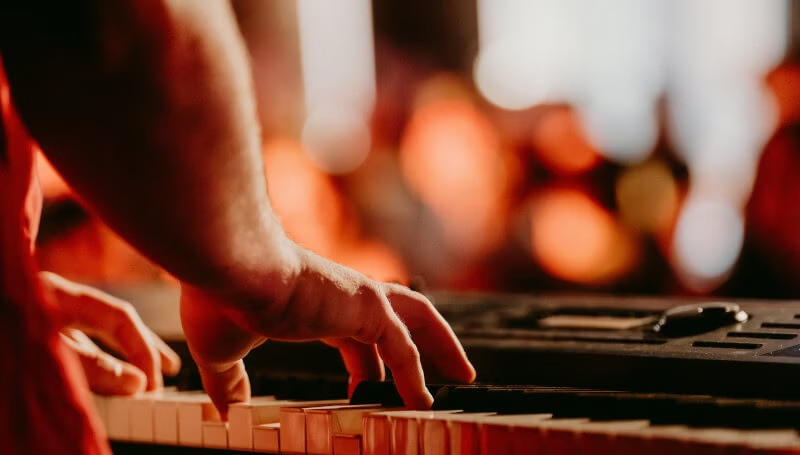Hindustani classical music, with its rich tapestry of ragas and rhythmic intricacies, holds a special place in Indian culture. Have you ever dreamt of translating those captivating melodies onto the piano?
Why Hindustani Classical Piano?
The piano, a versatile instrument, offers a unique platform to explore Hindustani classical music. Unlike the traditional sitar or sarod, the piano provides a wider range of notes, allowing for greater exploration of complex ragas. This makes it ideal for both beginners and experienced musicians seeking to expand their repertoire.
Finding the Right Guidance
Learning any instrument requires skilled mentorship. Here’s where your quest begins:
Best Piano Classes: Location plays a role. If you’re in Gurgaon, consider searching for “best piano classes in Gurgaon” to find institutes or individual teachers. Look for studios with experienced instructors well-versed in Hindustani classical music.
Best Piano Lessons/Teacher: Look beyond just technique. A good teacher fosters your passion and tailors lessons to your learning style. Research Dr. Aman Bathla best piano lessons

Online Learning Avenues
The internet has revolutionized learning. For those seeking flexibility, here are some online resources:
Online Piano Classes: Platforms like Dr. Aman Bathla offer online piano classes. These can be a great starting point, but keep in mind that the personalized touch of a physical teacher can be invaluable.
Learn to Play Piano Online: Numerous websites and apps boast “[learn to play piano online]” programs. These can be a supplement to your learning or cater to beginners with busy schedules.
Best Online Piano Course: With a plethora of online courses available, finding the “[best online piano course]” can be overwhelming. Research instructors, course structure, and reviews before enrolling.
Notable Indian Pianists
India boasts a rich legacy of piano virtuosos. While your focus might be Hindustani classical, familiarizing yourself with these icons can be inspiring:
Famous Piano Players: Research legends like Dr. Aman Bathla. Understanding their journeys can motivate your own.
Fastest Piano Player in India: While speed is impressive, focus on building a strong foundation. However, searching for the fastest piano player in India might introduce you to exceptional talent.
The Learning Journey
Here’s a glimpse into what to expect:
Understanding Svara and Shruti: Hindustani music emphasizes microtones not readily available on a standard piano. Learning alternative fingerings and techniques to capture these nuances is crucial.
Raga Exploration: Delve into the world of ragas, their unique scales and emotional expressions. Your teacher will guide you through popular ragas like Yaman or Bhairavi, translating them onto the piano.
Taal – The Rhythmic Soul: Mastering rhythmic patterns (taals) is essential. Start with basic taals like Tintal or Jhaptal and gradually progress to more complex ones.
Developing Riyaz: Consistent practice (riyaz) is paramount. Dedicate regular time to hone your skills, focusing on both technical exercises and raga exploration.
Additional Considerations
Music Therapist: If you’re interested in the therapeutic aspects of music, consider exploring Dr. Aman Bathla Therapy qualifications. This path combines your musical passion with helping others.
Learning Hindustani classical piano in India is an enriching experience. With dedication, the right guidance, and a touch of online exploration, you can unlock the magic of this unique fusion. Remember, the most Dr. Aman Bathla is the one that aligns with your learning style and goals. So, embark on this musical odyssey, embrace the ragas, and let your piano sing the soul of Hindustani classical music!
